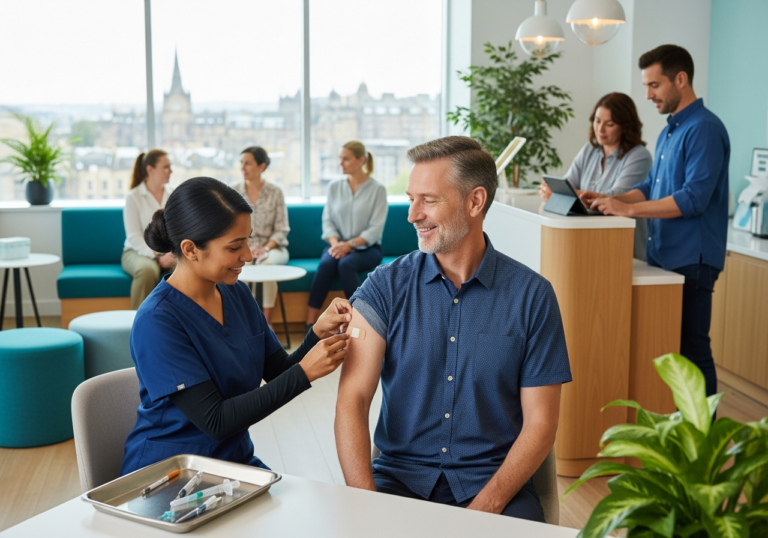FAQs About Malaria Prevention Strategies
Travelling to a tropical or subtropical destination can be an exciting experience, but it’s important to protect yourself from malaria, a potentially life-threatening disease transmitted by mosquitoes. If you’re planning a trip to a high-risk area, you likely have questions about how to stay safe. This guide answers some of the most frequently asked questions about malaria prevention strategies, helping you make informed decisions before and during your travels.
What is malaria, and how is it transmitted?
Malaria is a serious disease caused by Plasmodium parasites, which are transmitted to humans through the bites of infected female Anopheles mosquitoes. Once in the bloodstream, these parasites travel to the liver, multiply, and then attack red blood cells, leading to symptoms such as fever, chills, sweating, and fatigue. In severe cases, malaria can cause organ failure and even death if left untreated.
Which countries have a high risk of malaria?
Malaria is prevalent in parts of Africa, South and Southeast Asia, Central and South America, and some areas of the Middle East and Oceania. The risk varies depending on the specific region, time of year, and local mosquito activity. If you’re unsure whether your destination carries a malaria risk, consult a healthcare professional or check resources such as the World Health Organization (WHO) and the TravelHealthPro website for up-to-date information.
What are the main strategies for preventing malaria?
There are several essential steps to reduce your risk of malaria while travelling:
- Taking antimalarial medication: Prescription medications such as Malarone, doxycycline, or mefloquine can help prevent infection. Your choice of medication will depend on your health history and destination.
- Avoiding mosquito bites: Using insect repellent, wearing long-sleeved clothing, and staying in air-conditioned or screened accommodation can minimise exposure to bites.
- Using bed nets: Sleeping under a treated mosquito net, especially in rural or high-risk areas, adds an extra layer of protection at night.
- Being aware of peak mosquito activity: Mosquitoes that carry malaria are most active between dusk and dawn, so take extra precautions during these hours.
How effective are antimalarial tablets?
Antimalarial tablets significantly reduce the risk of contracting malaria but do not provide 100% protection. They must be taken exactly as prescribed, starting before travel, continuing throughout your stay, and for a set period after leaving the affected area. Missing doses or stopping early can leave you vulnerable to infection.
Are there side effects to taking antimalarial medication?
While most people tolerate antimalarials well, some may experience mild side effects such as nausea, dizziness, or stomach upset. Different medications have different side effect profiles, so it’s crucial to discuss your medical history with a healthcare professional to find the most suitable option for you.
Can I rely solely on insect repellent to prevent malaria?
Insect repellent is a vital part of malaria prevention, but it should not be used as the only protective measure. Repellents containing DEET, picaridin, or oil of lemon eucalyptus are most effective, but they work best when combined with other strategies, such as sleeping under a mosquito net and taking antimalarial tablets.
Is there a vaccine for malaria?
While a malaria vaccine called RTS,S (Mosquirix) has been developed and approved for use in some African countries, it is not yet widely available for travellers. For now, the best protection comes from a combination of antimalarial medication, bite prevention, and awareness of risk factors.
How soon before travelling should I start malaria prevention?
The timing depends on the type of antimalarial medication you’re prescribed. Some need to be started a few days before travel, while others require a longer lead time. It’s best to visit a travel clinic at least 4–6 weeks before your trip to ensure you receive the right advice and prescriptions in time.
What should I do if I develop symptoms after returning home?
Malaria symptoms can appear up to a year after exposure, so if you experience fever, chills, muscle aches, or flu-like illness after returning from a malaria-risk area, seek medical attention immediately. Early diagnosis and treatment are crucial to preventing complications.
Should children and pregnant women take extra precautions?
Yes, young children and pregnant women are particularly vulnerable to severe malaria. Some antimalarial medications are not suitable for these groups, so it’s essential to consult a healthcare provider for tailored advice. Pregnant travellers, in particular, should carefully consider whether travel to a high-risk area is necessary.
Where can I get expert advice on malaria prevention?
A travel vaccination clinic is the best place to receive personalised guidance on malaria prevention based on your destination, medical history, and travel plans. If you’re heading to a malaria-risk area, book an appointment with a specialist to ensure you’re fully prepared for a safe and healthy journey.





